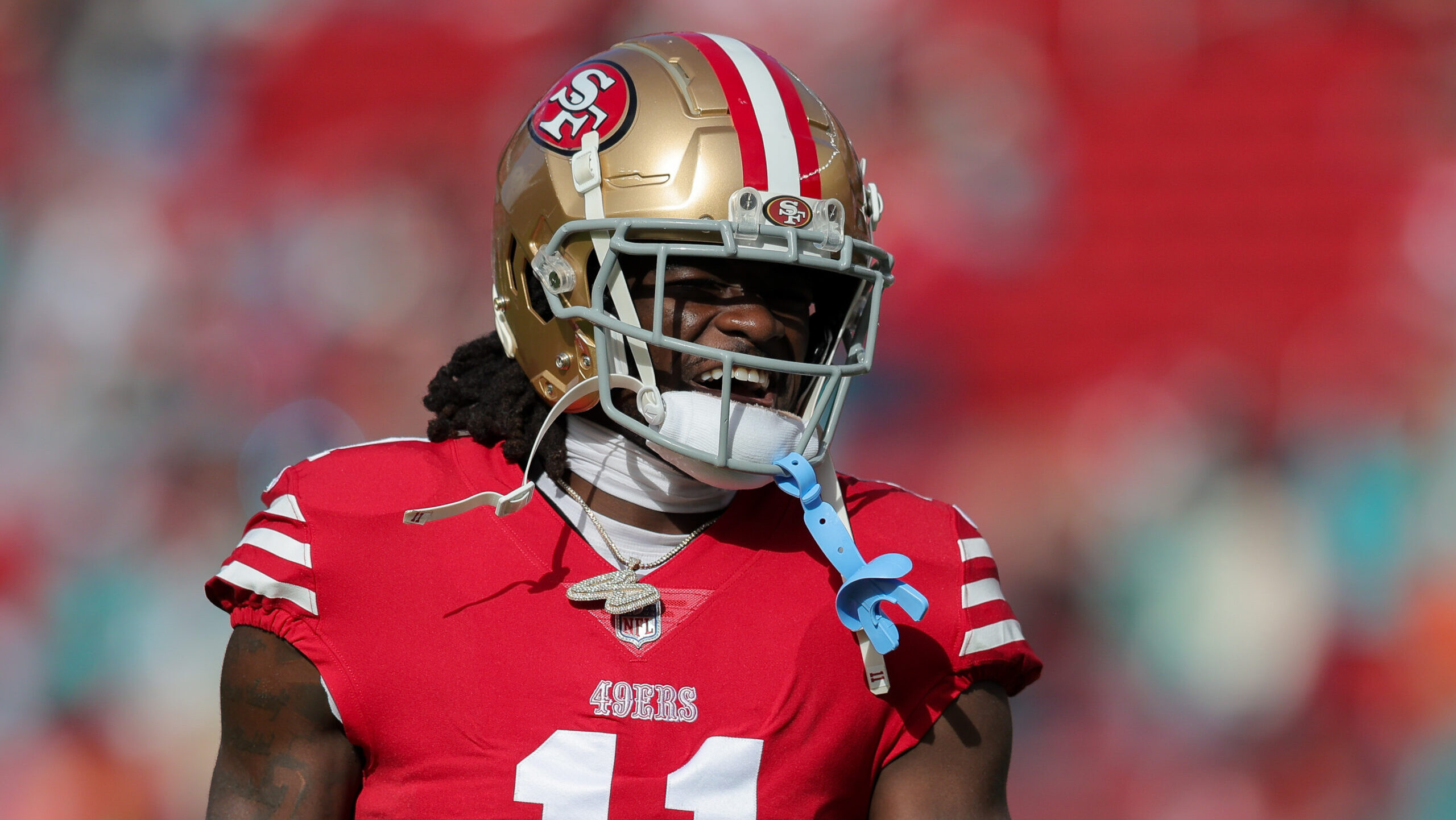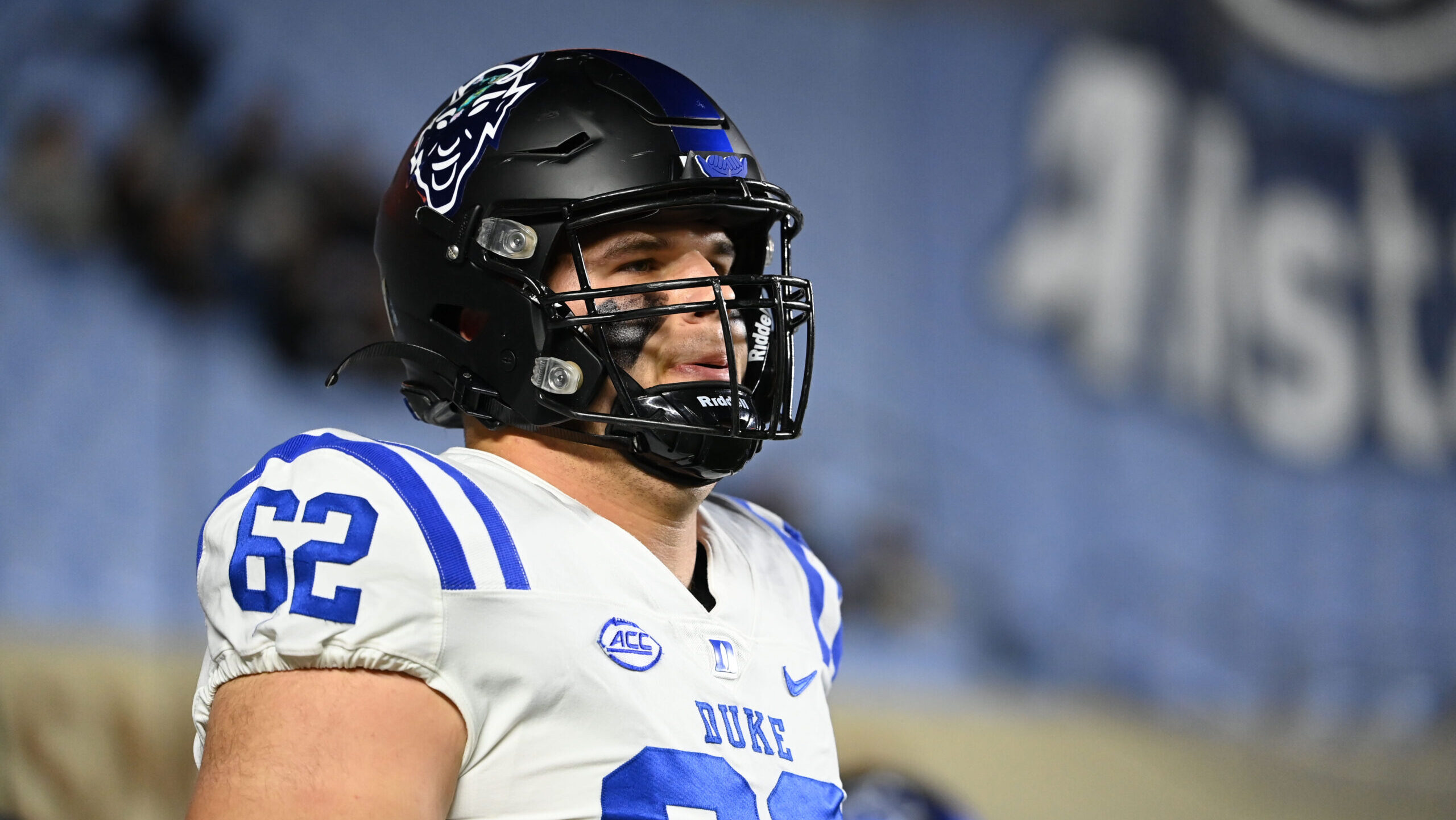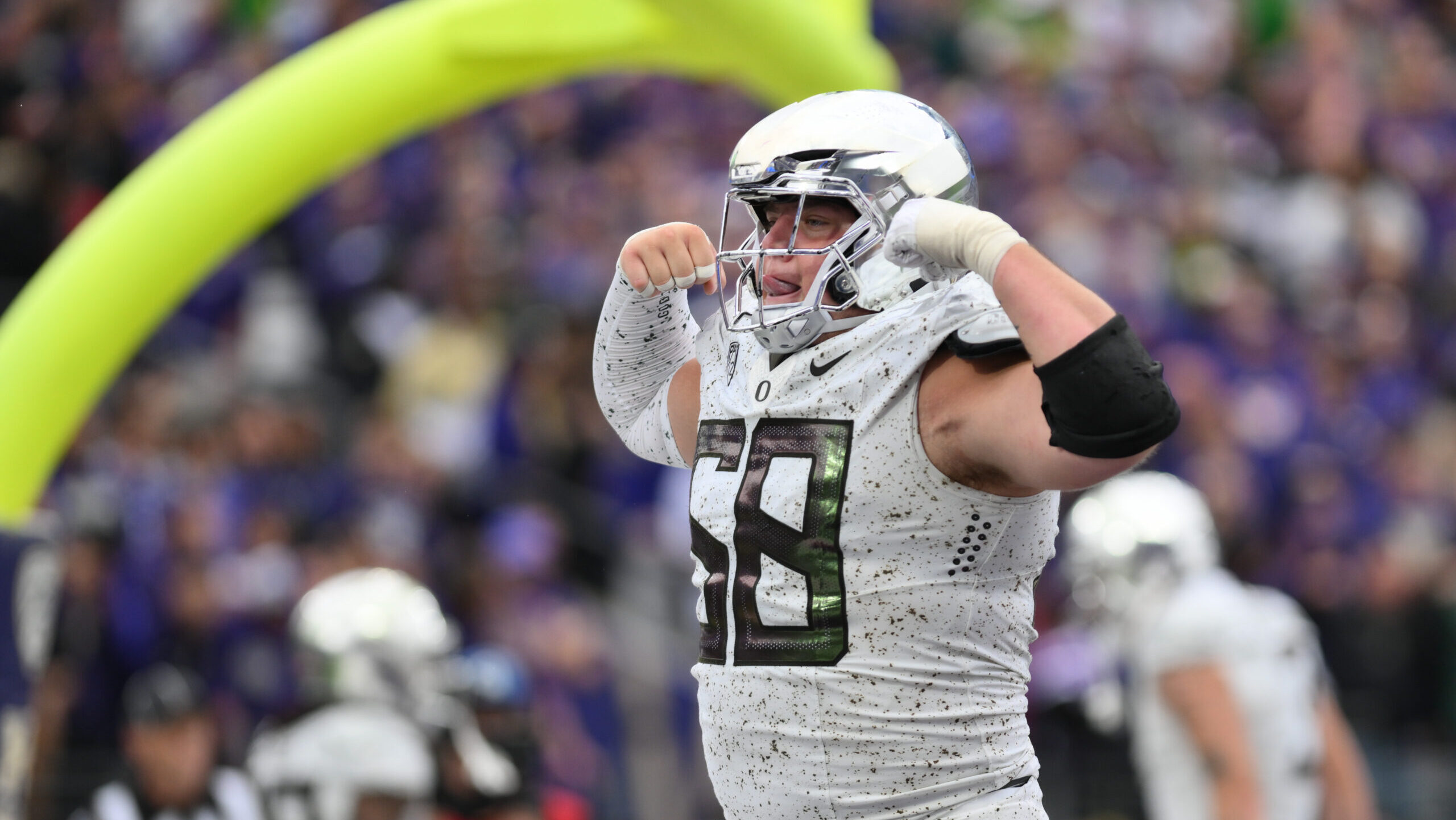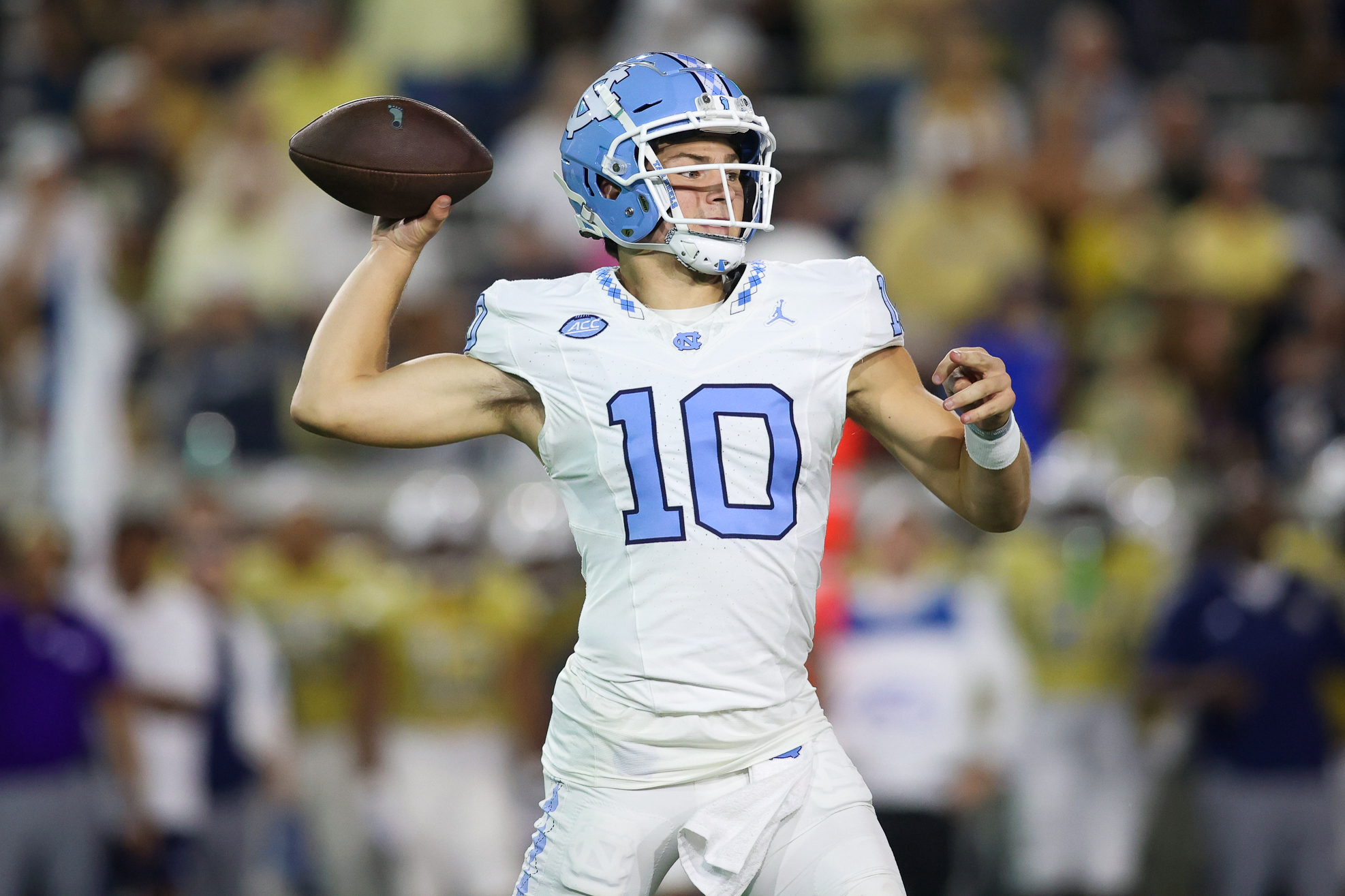Analysis
5/17/21
3 min read
Data Supports the Idea of Giving Rookie Quarterbacks Time to Develop
There is often a debate about when rookie quarterbacks should start in the NFL. While the answer to this question can be largely situational, it is possible to look back at how QBs who started immediately have fared compared to those that were given some time to develop before seeing the field.
The dataset for this comparison includes the projected starting QB for all 32 NFL teams, not including rookies. James Morgan from the Jets was excluded, as he has never started an NFL game, and Aaron Rodgers did not start a single game during his first three seasons. Thus, Rodgers was excluded as well, leaving 30 QBs.
Fourteen of these 30 quarterbacks started 13 or more games their rookie season, or 75% of the regular season, while the remaining 16 QBs started 12 games or fewer. While this is a relatively small sample size, it is interesting to look at these current quarterbacks who were successful enough to become NFL starters and how they performed in their first three NFL seasons.
The graphs below show the completion percentage, touchdowns, interceptions and yards per game for QBs who started 13 or more games their rookie year vs. QBs who started 12 or fewer games as a rookie.
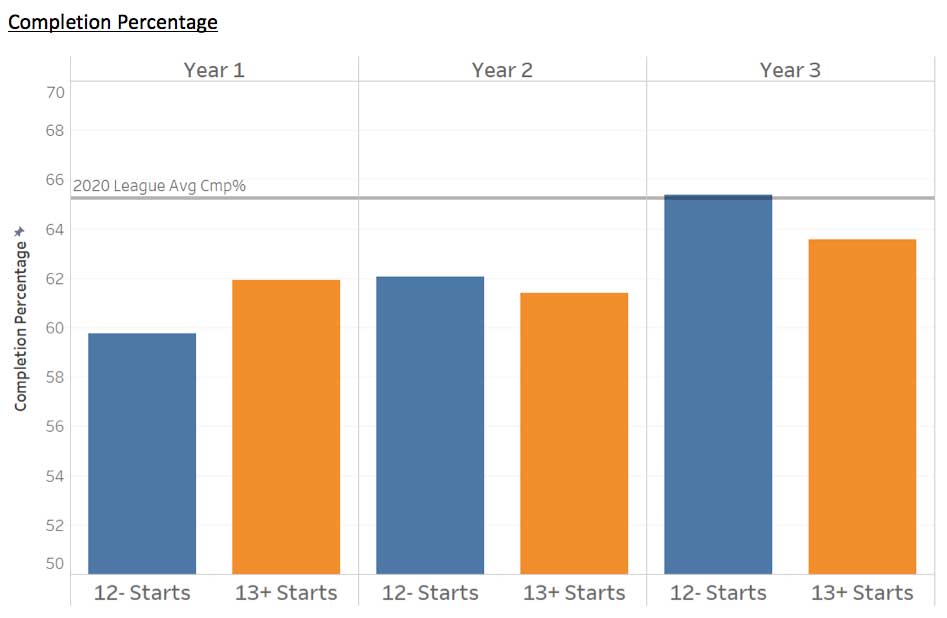
As can be seen from the graph above, rookies who start immediately generally have a higher completion percentage in their first year. This performance is likely due to them being highly regarded college prospects who are trusted with the keys their first season. However, the QBs who can sit and develop before earning their first starts on average outpace the immediate starters in year two and jump up to around league average completion percentage year three.
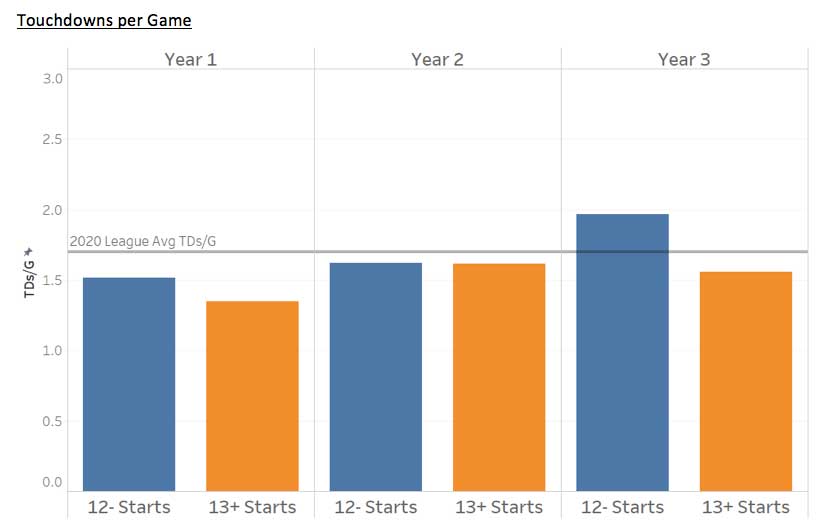
On average, the QBs who started right away had fewer touchdowns per game their rookie year, likely because play callers start out more conservative as the QB learns the offense on the fly. The second season, the two groups are relatively even, and then – similar to what we saw with completion percentage -- the QBs who took time to develop had a large leap in their third season.
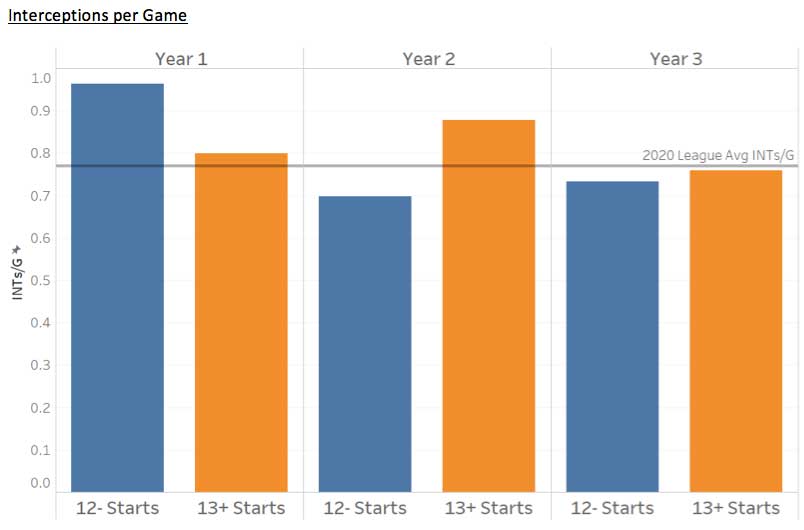
Interceptions on average have been a big problem for rookie QBs who do not start right away. This makes sense, as they were not trusted to come in right away and may have less command of the offense. Nonetheless, as with completion percentage and touchdowns, their interception rate improves drastically in the second and third seasons, well outpacing those who were thrust into action early.
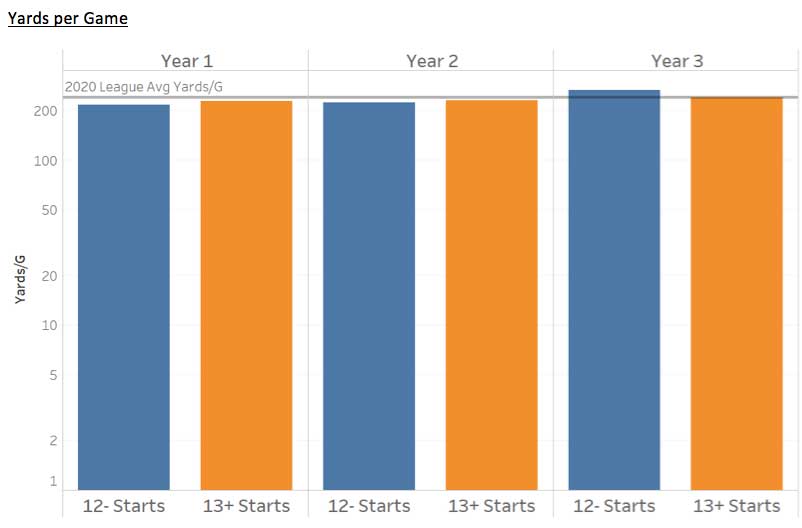
The trend continues with yards per game, as those who started right away outperformed those who did not, on average. Again, the QBs who were able to sit and develop as rookies were able to take a large leap in the third season and leave behind those who started immediately.
Conclusion
While the sample size of 30 QBs could be affected by outliers, there does seem to be a trend of QBs who are able to sit for at least four games outperforming those who start right away. Initially, these immediate starters tend to put up better numbers, but by the time they have reached their third season, many fall behind. Many of the great quarterbacks of today, such as Patrick Mahomes, Tom Brady and Deshaun Watson, took some time before they earned their first start. It will be interesting to see how this new crop of rookie QBs fairs initially and down the road.


